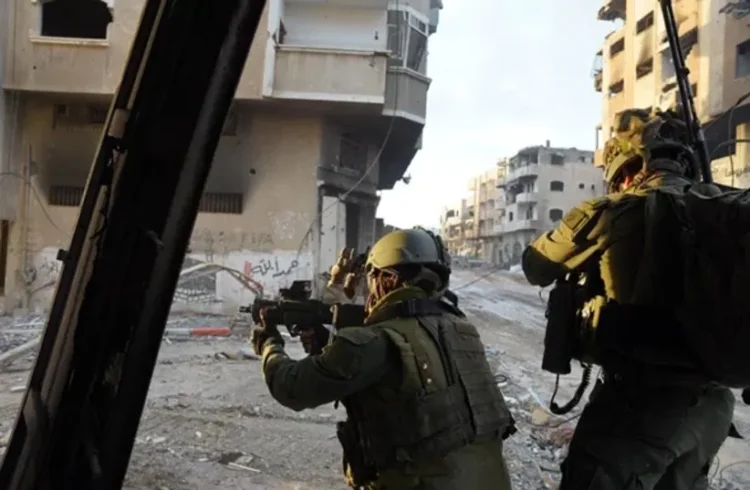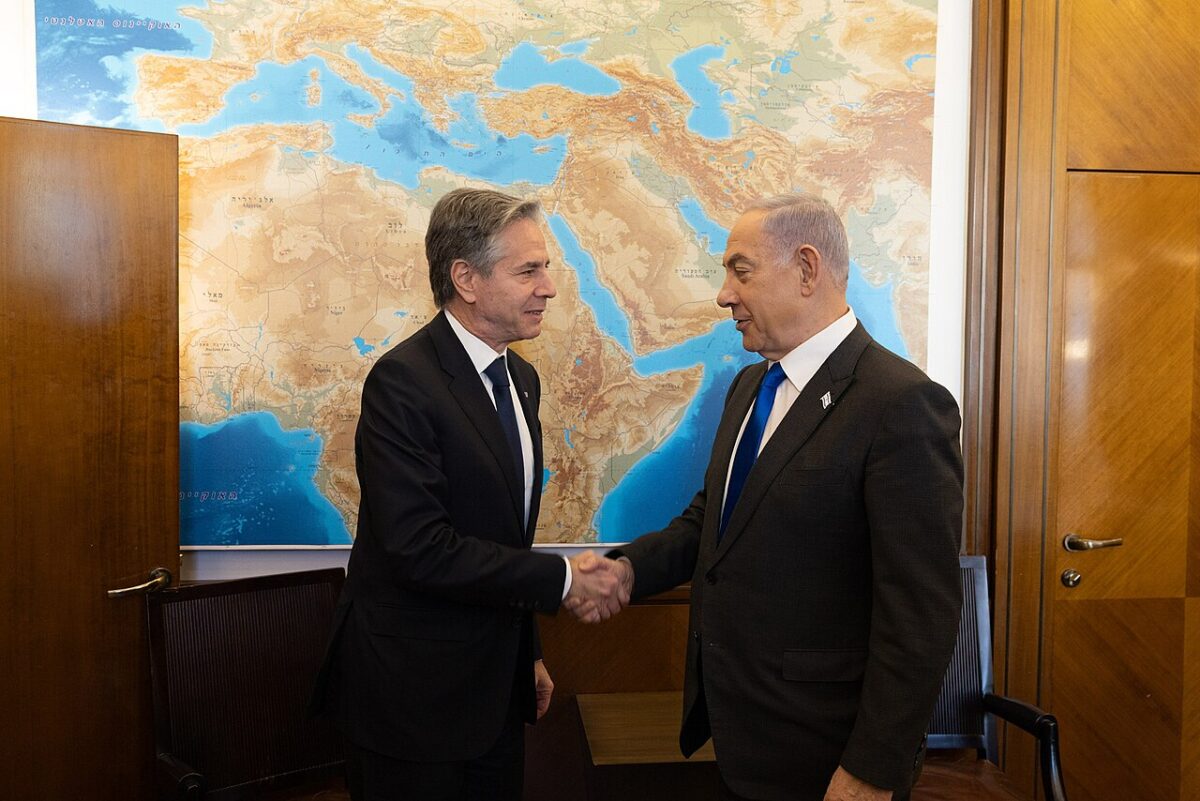Benjamin Netanyahu has defiantly rejected a Hamas counter-proposal to end the current war in the Gaza Strip, dismissing it as “delusional” and “ludicrous” and claiming that “total victory” is “within reach” after four months of fighting.
U.S. President Joe Biden appeared to agree with Netanyahu’s dismissive appraisal, saying that Hamas’ offer “seems to be a little over the top.”
Hamas released the full details of a ceasefire and hostage release deal yesterday through the Lebanese newspaper Al-Akhbar, which is close to Hezbollah, its ally. Hamas announced the offer in reaction to a proposal from Israel, Egypt, Qatar and the United States.
This agreement, if implemented, would unfold in three separate phases over 135 days. In broad terms, Hamas would release the remaining Israeli and foreign hostages in exchange for Palestinian prisoners. Israel, meanwhile, would gradually withdraw from populated areas in Gaza, cease all military operations and pull out of Gaza. This would lead to a cessation of hostilities.
Qatar’s prime minister, Mohammed bin Abdulrahman bin Jassim Al Thani, expressed optimism after receiving Hamas’ “positive response.”
But to Israel, it was little more than a wholly inadequate opening gambit in what may well be a lengthy negotiating process.
On February 8, a Hamas delegation arrived in Cairo for more talks, while one Israeli minister suggested that the Israeli government is still open to further negotiations, notwithstanding Netanyahu’s strong public rejection of Hamas’ position.
“There is agreement among members of the governing coalition, and particularly among individual members of the government, that we do have to get the hostages back and to make a deal,” said Miki Zohar, an Israeli minister and a confident of Netanyahu. “But not at any price,” he noted. “Stopping the war, for example, they won’t agree to.”

Hamas’ proposal is clearly a non-starter in the cold light of day because it would leave Hamas as the governing authority in Gaza and foil Israel’s strategy of destroying its military capabilities and removing it from power once and for all.
In categorically rejecting it, Netanyahu claimed that only military pressure would “lead to the liberation” of the hostages, an assertion that has yet to be proven, and stated that Israel already has destroyed 18 of 24 Hamas battalions. In addition, he announced that Israeli forces intend to invade Rafah, Hamas’ last stronghold.
Netanyahu said he could not accept Hamas’ truce proposal because it would “invite another massacre” on the scale of October 7, when bands of Hamas terrorists broke through a high-tech border fence into southern Israel in an unprecedented murder-and-rape rampage that cost the lives of 1,200 civilians and soldiers.

Viewed as the worst terrorist incident since Israel’s statehood, it exacted the highest death toll of Jews in a single day since the Holocaust.
Vowing to avenge these atrocities, which united Israelis in grief and rage, Israel mounted a fierce air and ground offensive that has so far resulted in the deaths of 226 soldiers and nearly 28,000 Palestinians, 10,000 of whom are believed to be Hamas foot soldiers and commanders.
During the course of the war, its longest since the 1948 War of Independence, Israel has levelled much of Gaza, having transformed it into a shattered wasteland of crushed and broken buildings that will take years and hundreds of billion dollars to reconstruct.
In the meantime, Netanyahu has said that Israel seeks to demilitarize Gaza, from which it withdrew unilaterally in 2005, and assume sole responsibility for its security. For all intents and proposes, Netanyahu has signalled that Israel intends to reoccupy Gaza indefinitely, a plan firmly opposed by the United States and Arab countries such as Egypt and Jordan.
Netanyahu has dismissed a U.S. proposal that Gaza should be administered by a “revitalized” Palestinian Authority in the future. And in accordance with the guidelines of his far-right government, he has come out against a two-state solution to resolve Israel’s conflict with the Palestinians, further straining Israel’s bilateral relations with the United States, its chief ally and benefactor.
The latest diplomatic developments have placed Israel’s pivotal relationship with the United States under stress yet again. This was plainly evident during U.S. Secretary of State Antony Blinken’s fifth tour of the Middle East since October 7.
In his meetings with Netanyahu and President Isaac Herzog in Jerusalem yesterday, Blinken said that, while “there’s a lot of work to be done” to achieve a ceasefire and a hostage release accord, he believes the Hamas’ offer “creates space” for an agreement. “While there are some clear non-starters in Hamas’s response, we do think it creates space for agreement to be reached, and we will work at that relentlessly,” he said in Tel Aviv.
Blinken expressed general support for Israel’s offensive in Gaza. “We made clear that Israel is fully justified in confronting Hamas and other terrorist organizations,” he said. “That’s why the U.S. has done more than any other country to support Israel right to ensure October 7 doesn’t happen again.”

But in a glaring caveat, Blinken said that Hamas’ mistreatment of the hostages does not give Israel “a licence to dehumamize others.” This was obviously a reference to the Palestinians.
Once again, Blinken urged Israel to minimize civilian casualties and to assure that life-saving humanitarian aid reaches Palestinian civilians in Gaza. “Nearly two million people have been displaced from their homes, hundreds of thousands are experiencing acute hunger, most have lost someone they loved, and day after day more people are killed.”
In Israel, however, the hostage issue takes massive precedence over the plight of the Palestinians.
By all accounts, Hamas still holds 132 hostages, though 32 are no longer alive, according to The New York Times. Until now, Israel had confirmed the deaths of 29 of the captives. At present, the Israeli army is evaluating whether 20 additional hostages may have been killed.
Hamas also holds the bodies of two Israeli soldiers, Oron Shaul and Hadar Goldin, who were killed in the 2014 Gaza war and still detains two Israeli civilians, Avera Mengistu and Hisham al-Sayed, who entered Gaza voluntarily in 2014 and 2015.
One hundred and five hostages were released by Hamas last November. Four hostages were released prior to that. One captive was rescued by troops. The bodies of eight hostages have been recovered. Three hostages were accidentally killed by Israeli troops.
The fate of the hostages is one of the issues that is causing tension in the Israeli government.
Gadi Eisenkot, an observer in the war cabinet and a former chief of staff of the Israeli armed forces, has accused Netanyahu of making unilateral decisions and wasting time in the prosecution of the war against Hamas. “He does not consult and he does not make decisions on crucial issues,” he said, warning that Netanyahu’s tactics are benefiting Hamas.
Still others, like David Horovitz, the editor of the Times of Israel website, contend that Netanyahu’s performance has been less than impressive.
As he wrote two days ago,”It is way past time for the prime minister to tell his far-right partners that, no, Israel is not going to permanently reoccupy Gaza; that it is not an Israeli interest to retake civil and financial responsibility for 2.3 million hostile Gazans; that Israel must urgently work with the relevant parts of the international community to create a mechanism for non-Israeli civil governance in Gaza, and that if this is not to their taste, they are welcome to leave the government.
“Endless bluster about “absolute victory” is meaningless without the practical political and military tools to attain it. And the only beneficiary of such paralyzing disunity at the top of Israeli governance is Hamas.”
